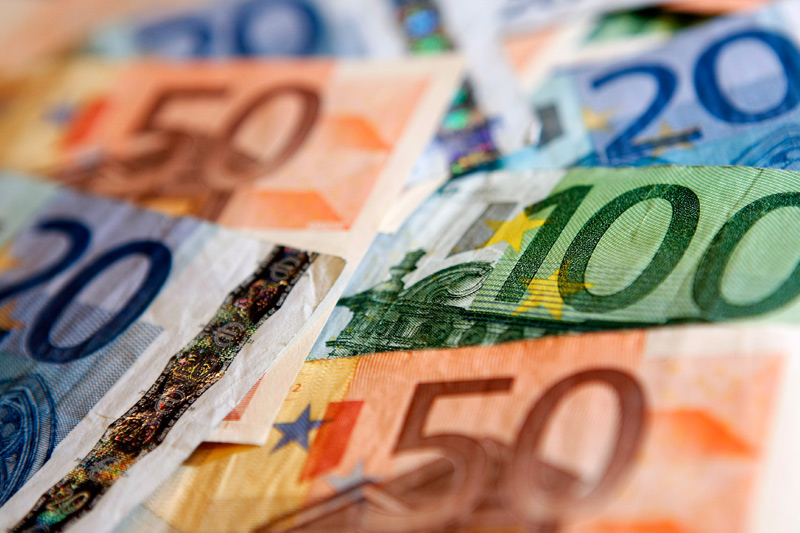Investing.com - The euro pushed higher against most of its major counterparts on Thursday, but the shared currency’s gains were capped as concerns over Spain’s elevated borrowing costs and its troubled banking system weighed.
During European late morning trade, the euro pulled back from a near two-year low against the U.S. dollar, with EUR/USD rising 0.27% to hit 1.2399.
Sentiment on the euro was buoyed by expectations that Ireland would pass a vote for the European Union’s fiscal treaty in a referendum on Thursday.
Elsewhere, official data showed Germany’s unemployment rate dropped to a record low of 6.7% in May, indicating that the euro area’s largest economy is weathering the effects of the debt crisis.
But ongoing worries over the situation in Spain, where mounting borrowing costs and the lack of a convincing plan to recapitalize nationalized lender Bankia fuelled fears that Madrid will be forced to seek an international bailout.
The yield on Spain’s 10-year bond was hovering close to euro-era highs at 6.7%, near the critical 7% threshold that led Greece, Ireland and Portugal to seek outside assistance.
Meanwhile, uncertainty over the outcome of a second Greek general election weighed after opinion polls showed that pro and anti-austerity parties were neck-and-neck ahead of the June 17 vote.
Elsewhere, the single currency was trading close to a four-month low against the yen, with EUR/JPY dipping 0.06% to hit 97.72.
The euro edged higher against the pound and the Swiss franc, with EUR/GBP easing up 0.15% to hit 0.8001 and EUR/CHF inching up 0.03% to hit 1.2012.
The euro was marginally higher against the Canadian, Australian and New Zealand dollars, with EUR/CAD easing up 0.11% to hit 1.2753, EUR/AUD dipping 0.06% to hit 1.2735 and EUR/NZD inching up 0.01% to hit 1.6420.
Later in the day, the U.S. was to release preliminary data on first quarter economic growth, as well as reports on private sector employment and initial jobless claims and data on business activity in the Chicago area.
During European late morning trade, the euro pulled back from a near two-year low against the U.S. dollar, with EUR/USD rising 0.27% to hit 1.2399.
Sentiment on the euro was buoyed by expectations that Ireland would pass a vote for the European Union’s fiscal treaty in a referendum on Thursday.
Elsewhere, official data showed Germany’s unemployment rate dropped to a record low of 6.7% in May, indicating that the euro area’s largest economy is weathering the effects of the debt crisis.
But ongoing worries over the situation in Spain, where mounting borrowing costs and the lack of a convincing plan to recapitalize nationalized lender Bankia fuelled fears that Madrid will be forced to seek an international bailout.
The yield on Spain’s 10-year bond was hovering close to euro-era highs at 6.7%, near the critical 7% threshold that led Greece, Ireland and Portugal to seek outside assistance.
Meanwhile, uncertainty over the outcome of a second Greek general election weighed after opinion polls showed that pro and anti-austerity parties were neck-and-neck ahead of the June 17 vote.
Elsewhere, the single currency was trading close to a four-month low against the yen, with EUR/JPY dipping 0.06% to hit 97.72.
The euro edged higher against the pound and the Swiss franc, with EUR/GBP easing up 0.15% to hit 0.8001 and EUR/CHF inching up 0.03% to hit 1.2012.
The euro was marginally higher against the Canadian, Australian and New Zealand dollars, with EUR/CAD easing up 0.11% to hit 1.2753, EUR/AUD dipping 0.06% to hit 1.2735 and EUR/NZD inching up 0.01% to hit 1.6420.
Later in the day, the U.S. was to release preliminary data on first quarter economic growth, as well as reports on private sector employment and initial jobless claims and data on business activity in the Chicago area.
